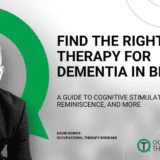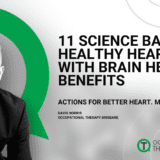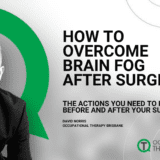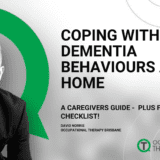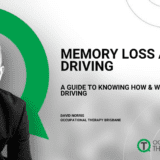Brain Exercises Improve Brain Speed In Retirement Community
Can brain exercises improve brain speed? There is no doubt a lot of market hype to demonstrate the benefits of brain training to improve brain performance and to effect a reduction in dementia.
It’s all to clear the cost of dementia is significant for our community and if there is an opportunity to reduce the likelihood of it by 30% what would this mean to the community, to the very precious lives of each and everyone?
The LANCET (2017) showed us you can do something about preventing dementia and at its heart, it appears simple.
The LANCET’s paper shows us the benefit of brain health in action with the potential to prevent dementia in our community.
It’s important to note that “health” is such a subjective and loaded term and skewed by those who spruik it, us, allied health folk included. What’s important is that there are objective measures of brain health and performance to back up program and tool claims in order to help people obtain better brain heath.
For some folk health is translated as being able to enjoy bridge, golf ( insert whatever is meaningful) a statement of wellness. If you asked a GP you’re likely to get a response about absence of disease.
In the end how do we get there?
How do we achieve the LANCET’s promise of a reduction of 1 in 3 people living with dementia?
Of the 9 pillars to better brain health I speak about challenging your brain is one of them.
No doubt technology has a role to play here.
So, it was of interest to me and perhaps you as well to learn of a recent study’s reported findings.
Study: Brain Exercises Improves Brain Speed In Retirement Community Population
The study was set up to investigate whether speed of processing training (SOPT) had an effect in retirement community dwelling older folk. The age range was 55 – 102 years of age across assisted living and independent living settings.
What They Did: 10 hours of brain training on a specific exercises designed to target speed of processing and then periodic “boosters” over a 12month period compared to a control group who did crosswords.
What They Found: A statistically significant difference between the people who had the training versus those who didn’t.
Summing Up: There appears to be potential benefit of SOPT for older adults in senior living communities and support the feasibility and acceptability of SOPT in assisted and independent living for older adults.
Says the paper’s authors which you can read the article in full here: https://onlinelibrary.wiley.com/doi/abs/10.1111/jgs.15423
A Word Of Caution About The Brain Exercise Promise
What is the implied benefit of SPOT? Does speed translate to better working memory? Does it imply better clarity and focus, more vitality?
Prof Neil Charness, in a study of brain training exercises debunked the common opinion that brain-training games improve cognition in a way that can enhance cerebral performance in other areas of your life.
Sure. If you practice a specific game regularly, your mental sharpness and prowess doing that specific game will improve.
The issue is how far does this effect ripple, much like a wave in a pond, to other domains of your life, other cognitive skills? It’s the real world benefits which appear to be light on in most papers and often poorly measured as is the case here. That said for every paper that says one thing you’ll find a weight of evidence to suggest another, right?
The role of technology, like the one described in the paper, is much like going to the gym. If you keep lifting weights to bulk up the arm it’s hardly going to help with your legs nor get you to State of Origin level of performance.
It offers part of the brain health solution puzzle.
There Is No Magic Bullet.. but…
A Holistic- Lifestyle Approach is needed to improve brain health and performance. Promoting healthy lifestyle habits such as exercise, diet, mental fitness ( including targeted cognitive training), rich and robust social interaction, sleep and controlling health risks like high blood pressure and diabetes is certainly warranted.
Happy to hear your thoughts?
We’re working with Retirement Villages to help them and their communities to be Brain Health Smart. Are you interested in being involved? If so click here to get in touch with us today or call us directly at 1300 783 200.
David
Sources
- Prof. Neil Charness and colleagues paper can be read here: https://www.frontiersin.org/articles/10.3389/fnagi.2017.00041/full
- LANCET (2017) Dementia prevention, intervention, and care: https://www.thelancet.com/commissions/dementia2017
- Speed‐of‐Processing Training in Assisted and Independent Living: A Randomized Controlled Trial: https://onlinelibrary.wiley.com/doi/abs/10.1111/jgs.15423
